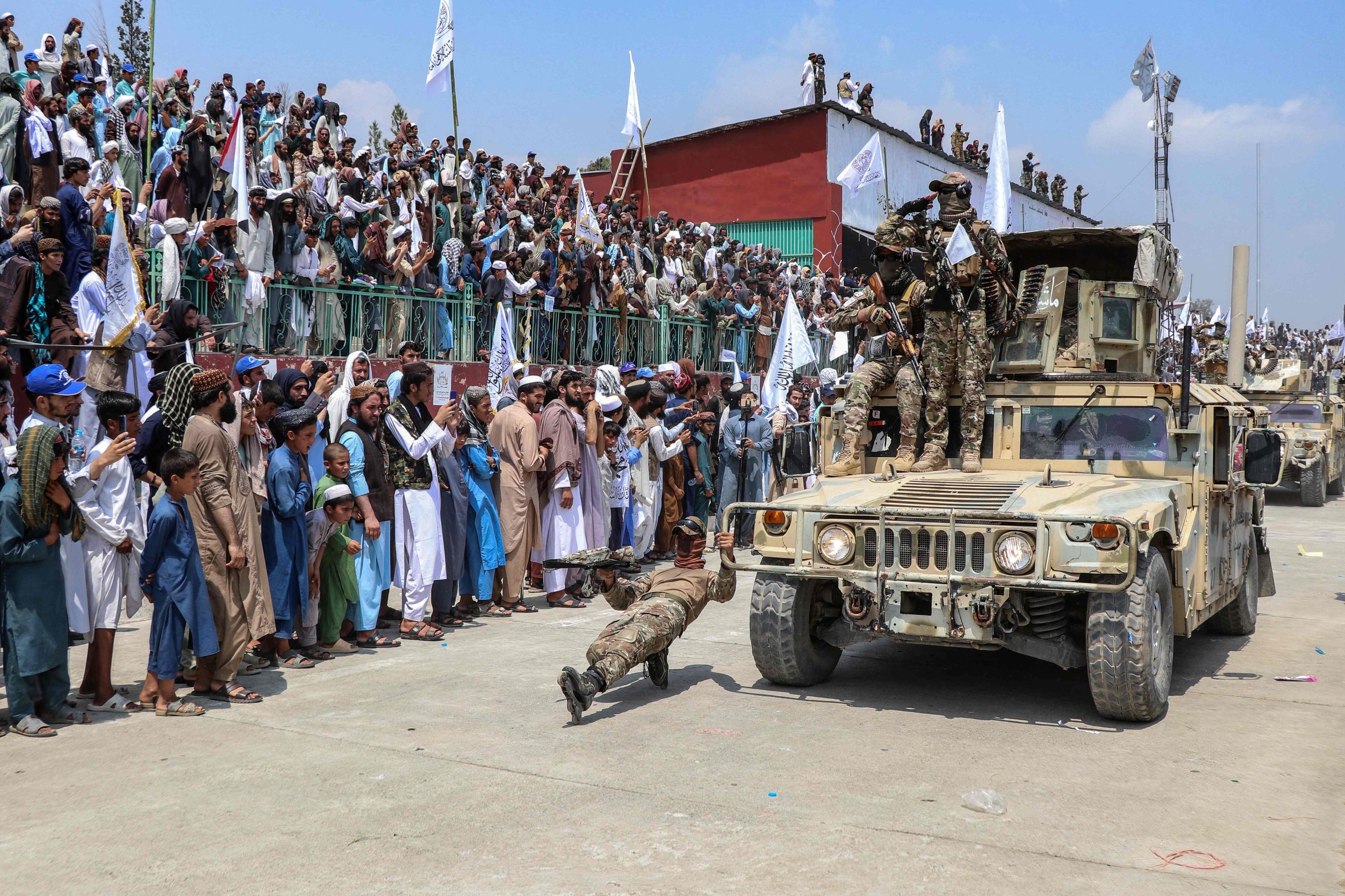
The Taliban rulers of Afghanistan marked Wednesday three years at the helm of the country with an elaborate military parade.
The Taliban's armed forces towed Soviet-era tanks and artillery pieces through the former U.S. air base in Bagram, where Chinese and Iranian diplomats were also present.
The former Bagram base once served as the linchpin for U.S.-led operations against the Taliban for two decades.
A swarm of motorbikes strapped with yellow jerry cans, often used to carry improvised explosive devices (IED) during the fight against international forces, also rumbled past assembled officials.
There were also U.S.-made armored personnel carriers, the black-and-white flag of the Islamic Emirate of Afghanistan – the Taliban government's formal name for the country – fluttering above them.
Helicopters and fighter aircraft flew over the base, where Taliban fighters were once imprisoned, about 40 kilometers (25 miles) north of Kabul.
Taliban forces seized the capital on Aug. 15, 2021, after the U.S.-backed government collapsed and its leaders fled into exile. The anniversary is marked a day earlier on the Afghan calendar.
Their government remains unrecognized by any other state, with restrictions on women, who bear the brunt of policies the United Nations has called "gender apartheid," remaining a key sticking point.
"Three years have passed since the dreams of girls have been buried," Madina, a 20-year-old university student in Kabul, told AFP.
"It's a bitter feeling that every year, the celebration of this day reminds us of the efforts, memories, and goals we had for our future."
Prime Minister Mohammad Hassan Akhund, who had been scheduled to appear at Bagram, praised the Taliban authorities' victory over "Western occupiers" in a statement read by his chief of staff.
The Taliban government has "the responsibility to maintain Islamic rule, protect property, people's lives and the respect of our nation," he said.

'Victory'
Security has been a key priority for Taliban authorities as they consolidated their grip on power over the past three years, implementing laws based on their strict interpretation of Islam.
However, attacks by the Daesh terrorist group remain a threat and extra security was deployed in Kabul and the Taliban's spiritual home of Kandahar in southern Afghanistan ahead of the "day of victory."
Helicopters also flew over the Ghazi stadium in Kabul, where hundreds of men gathered to watch an exhibition of athletics and performances of Taliban anthems.
The Taliban takeover is marked both in mid-August around the date Kabul fell and at the end of the month, when the last foreign troops left Afghanistan after a chaotic withdrawal.
The black-and-white standard decorated streets and happy young boys carried a large flag in the Green Zone, once a secure enclave of foreign embassies.
While many Afghans expressed relief at the end of 40 years of successive conflicts, the economy remains stagnant and the population mired in a worsening humanitarian crisis.
A joint statement from international non-governmental groups warned of the growing aid funding gap, with 23.7 million people in need of humanitarian assistance.
Women have been squeezed from public life – banned from many jobs as well as parks and gyms – and barred from secondary and higher education.
Human Rights Watch (HRW) reiterated calls for pressure on the Taliban government to lift restrictions on women.
"The third anniversary of the Taliban's takeover is a grim reminder of Afghanistan's human rights crisis, but it should also be a call for action," said Fereshta Abbasi, HRW's Afghanistan researcher.
